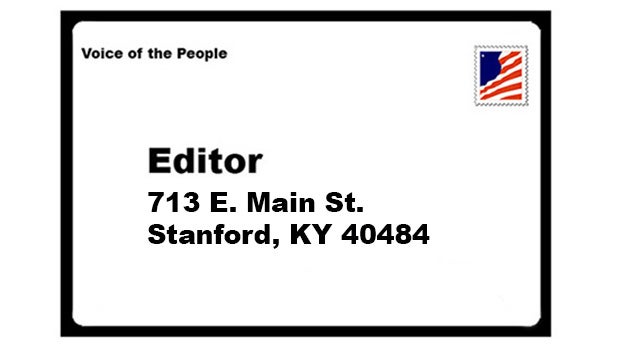Tax hikes offer bad news for Fluffy
Published 12:01 pm Thursday, August 16, 2018
By Jim Waters
Guest columnist
I had my first run-in with one of a bevy of new state taxes recently when forced to fork over an extra $1.61 while picking up some dry cleaning.
My frustration increases with the knowledge that new taxes implemented by the legislature this year and collected beginning July 1 on 17 previously exempt services were the result of, as the Bowling Green Daily News puts it, “a cynical political calculation … to target these small businesses because of the lack of political clout.”
Apparently, small salt-of-the-earth-type businesses that provide janitorial, pet grooming, landscaping and, yes, dry cleaning and laundry services, haven’t been sufficiently greasing Frankfort’s skids.
These smaller operations lack the kind — and amount — of political clout found in bigger, more influential industries such as the legal and accounting professions, from which come significant numbers of large campaign checks to politicians making taxing decisions.
Such contributions are generally followed up by overpaid lobbyists hanging out in Capitol hallways as visible reminders of past — and potentially future — checks, or lack thereof, when critical votes are cast, especially ones involving their clients.
There was a time when dry cleaners had coverage in Frankfort from some powerful politicians and an effective lobbyist or two along the way, all of which provided at least some protection from the severe consequences of such arbitrary tax policies.
Apparently, such cover no longer exists.
What will never go away, however, is politicians’ addiction to taxpayers’ hard-earned money, which, it turns out, is a bipartisan malady.
Instead of employing their supermajority to accomplish a bold, conservative agenda during this year’s legislative session — such as providing funding for charter schools and cutting wasteful spending — Republicans used their power to support a hastily thrown-together tax plan that harms poor and middle-income Kentuckians and arbitrarily targets more than a dozen kind of businesses.
Longtime GOP leaders add to the frustration by dismissing the uproar.
“The mainstream media narrative is going to be how many people are mad about having to pay a tax when they take Fluffy to the vet,” Senate Majority Floor Leader Damon Thayer, R-Georgetown, told reporters. “What they are not going to report is we cut people’s taxes.”
But those of us living our lives outside Frankfort’s bubble figured out that a modest reduction in income tax rates won’t outdo the threat presented by arbitrarily raising taxes in an already overtaxed state by nearly a half-billion dollars.
Bragging will abound on this fall’s campaign trail about a modest reduction in income tax rates to a flat 5 percent.
Voters should confront that bragging by asking: Why does Kentucky even still have an income tax, which is so yesterday and amounts to nothing but punishment for productivity?
Tax-hiking politicians and progressive advocates who aid and comfort them don’t seem to consider that taxing activities, services and products often results in less of those activities occurring and fewer purchases of those services and products.
It’s not that these pro-tax politicians and advocates are completely oblivious to such outcomes. Rather, they apply it selectively.
Why, for example, do so many of the same policymakers who garner support for higher cigarette taxes by claiming such hikes will reduce smoking rates fail to consistently expect the same consequence for other products and services?
If raising cigarette taxes results in fewer people smoking, how does taxing dry cleaning and small-pet veterinarians not also create incentives for Kentuckians to avoid paying those taxes with smaller orders or by crossing the border and taking Fluffy to the vet in Cincinnati or Nashville?
Jim Waters is president and CEO of the Bluegrass Institute for Public Policy Solutions, Kentucky’s free-market think tank. He can be reached at jwaters@freedomkentucky.com and @bipps on Twitter.




